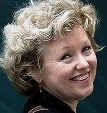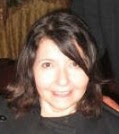by Kathy Jones
A year after a student of mine named Andrea was murdered by her boyfriend, I began to write a book about the event.
I have always felt vulnerable about writing. But, until I wrote Living Between Danger and Love, I had been able to hide behind the scholarly jargon of my field. I couldn’t hide in this book. Not that I didn’t try.
When I first started to write about the murder, I approached it like every other academic topic I had taken on—as if it was only a philosophical problem to solve. And the problem, as I saw it then, was domestic violence so I approached it as a feminist writer—as someone who wanted to engage the issue of violence in intimate relationships in order to empower women and men to work against violence. In the beginning, I wasn’t very self-reflective. I allowed my analytical mind to take over and it took me far away from the subject instead of more deeply into it.
Then, two things happened. In 1996, after a lecture I gave about interdisciplinary perspectives on violence against women, I used Andrea’s story to illustrate the points. After I'd finished, a close friend approached me. How much of the story was I willing to tell, he wanted to know. How much of the truth was I going to share? I knew exactly what he meant. What he was asking was this: Was I willing to reveal myself?
A year later I gave another lecture on the same subject. A graduate student raised his hand and then posed a controversial question: “But where are you in all this?”
Those two incidents, along with conversations with friends and family and other women writers, prompted me to write a different kind of book.
The following fall I went to Sweden, a place both familiar and strange. And there, in the shadow-filled Nordic autumn, I began to write about my family, my childhood.
At first what I wrote seemed to have no connection to the book I was writing about Andrea. Interesting memories, I thought, and took copious notes. Then, I sent a portion of what I had been writing to an editor with whom I had worked on an academic book, and after she read what I’d written she said something that both scared and exhilarated me. “Get rid of all the footnotes!” she said.
And so I did.
And when I discarded the footnotes I also discarded the protective scaffolding that had prevented me from discovering a more authentic, writerly voice. Hidden in a thicket of references and arguments was a stronger, surer voice saying, again and again, I must speak the truth, I must speak the truth. Only then did I understand what and why I was writing.
To me, Living Between Danger and Love is a memoir of mourning. It’s about loss and coming to terms with the unsettling of self that loss evokes, an unsettling brought on by thinking about all that remains, undone and unsaid and unfinished, and then wondering how to go on living with that.
I tried to write what it felt like to experience living with difficult memories. I explored complicated, uncomfortable feelings about memory and loss. Many people might say that the issues I wrote about in this book—violence in intimate relationships--are far away from their lives. But the point of memoir is to bring what seems far away closer; the memoirist tries to make the strange become familiar.
So, for me, writing memoir took me in directions I hadn’t anticipated and helped me find a voice I hadn’t known I had. And it pushed me to examine how writing help one engage with the things we have in common as humans. Because writing opens you into the world.
After teaching women's studies at San Diego State University for twenty-three years, Kathy Jones retired (early) to pursue her writing career. An award-winning scholar, with several books in feminist theory and politics, Kathy published her first memoir in 2000, Living Between Danger and Love: The Limits of Choice. Her short fiction and essays have appeared in Briar Cliff Review, Fiction International, and online at Mr. Bellar's Neighborhood. In 2009, her play, Acts of Faith, based on the short stories of Grace Paley and written in collaboration with Sharyn Blumenthal, was produced in San Diego by Laterthanever Productions. She is currently revising another memoir, What Hannah Would Say, and is at work on an historical novel, Not For Oneself Alone, based on Hannah Arendt's years in America. She also blogs at WritingRevolutions. When she's not writing she is practicing yoga at Ginseng Yoga in San Diego. You can read more about Kathy at her web site.
After teaching women's studies at San Diego State University for twenty-three years, Kathy Jones retired (early) to pursue her writing career. An award-winning scholar, with several books in feminist theory and politics, Kathy published her first memoir in 2000, Living Between Danger and Love: The Limits of Choice. Her short fiction and essays have appeared in Briar Cliff Review, Fiction International, and online at Mr. Bellar's Neighborhood. In 2009, her play, Acts of Faith, based on the short stories of Grace Paley and written in collaboration with Sharyn Blumenthal, was produced in San Diego by Laterthanever Productions. She is currently revising another memoir, What Hannah Would Say, and is at work on an historical novel, Not For Oneself Alone, based on Hannah Arendt's years in America. She also blogs at WritingRevolutions. When she's not writing she is practicing yoga at Ginseng Yoga in San Diego. You can read more about Kathy at her web site.













2 comments:
Kathy--I appreciate your focus on the importance of "getting real" if we are to write meaningfully. I am still working on that, and have to admit I am not as brave as you are. Fiction is easier in this respect because the author can choose what will and won't be in the story and can shield her/himself from some intensity by writing as or about another person. You've thrown down a gauntlet for me here, and I am already thinking about how I can go a little closer to my own griefs in my next project. Thanks! Laurel
Kathy,
What a process your book must have been. Yes, I know very well how much it takes to write a memoir. But I love the way it keeps us honest,
and almost as if another part of ourselves has a little deeper insight. At least that's how it was for me.
I'm looking forward to reading "Living Between Danger and Love."
--Karen
Post a Comment